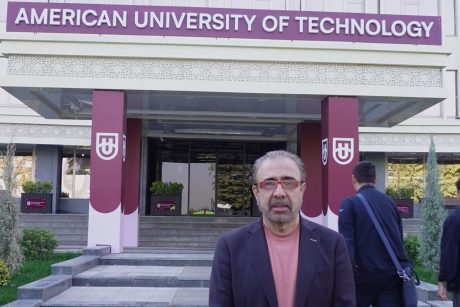Eight things you should know as a PhD student

Foto: Getty Images
Can I change supervisors? What happens if I get sick? And where can I turn for support in practical matters as a doctoral student? Caroline Hövik, ombudsman at Sveriges Ingenjörer, shares her best pieces of advice.
As a doctoral student, you stand in the middle between studies and work. You are still a student and participate in courses that are part of your doctoral education, but at the same time you are an employee.
In your work, you are therefore covered by both the Higher Education Ordinance and labour rules. And that’s a lot to keep track of, especially if you are new in Sweden.
– We have noticed that there is a need to find out more about what rights and obligations you have as a doctoral student and where you can turn for various issues, says Caroline Hövik, ombudsman at Sveriges Ingenjörer.
What are my rights and obligations?
Together with local Saco-S and the doctoral student ombudsman, she has been visiting universities to give advice and support to doctoral students. Some of them come from other countries and are interested in getting information about how it works in Sweden, but even Swedish PhD students appreciate getting a better overview of which rules apply and what might be important to bear in mind.
– The student union and the labour union have slightly different roles and can help doctoral students in different ways. In general, the labour union provides advice and support regarding labour law issues, while the student union handles what concerns the studies, says Caroline Hövik.
Eight pieces of advice for PhD students
1. Find out how your employment works
As a doctoral student, you have annual working hours that vary somewhat depending on age. You are usually employed for one year at a time and there is a maximum limit which means that you cannot be employed for longer than the equivalent of four years of full-time studies. The work also includes service at the institution, which may for example involve teaching. That part of the job must not be more than 20 percent.
– But you have the right to prolongation if, for example, you are on parental leave, on sick leave or join the local union as an elected official, says Caroline Hövik.
2. Make sure you have an updated Individual study plan, ISP
The ISP is an important document that contains a plan for how you will reach your dissertation. Here you describe which courses you take as a student, what your institutional duties are and what the milestones are for you to keep on track.
– Be sure to keep this document updated if there are any changes. If, for example, you get new tasks or if your teaching time changes, this must also be stated in your ISP, explains Caroline Hövik.
3. Don’t neglect your own recovery
As a doctoral student, you are covered by the working time rules that relate to the Working environment act as well as regulations regarding social and organisational work environment. This means, for example, that you have the right to recovery, that you must have clearly defined work tasks and that your supervisor must help you to prioritise and plan your work in order to have a reasonable workload.
– It is common for doctoral students to have fixed-term employment, and many feel that it is stressful and difficult to draw the line for how much you work. Remember to find the balance between work and other things and make sure you take time to recover, reminds Caroline Hövik.
4. Plan your vacation
Even a doctoral student has the right to vacation. This means that you are entitled to 28 days of paid vacation up to and including the year you turn 29, after which you have 31 days of vacation. From the time you turn 40, you have 35 days of paid vacation. There may also be local agreements around the vacations.
You are entitled to take four consecutive weeks of vacation during the month of July-August and must take at least 20 days during the year. You can thus save the remaining days for the rest of the year.
– It is common for higher education institutions to use standard vacations, usually five weeks after midsummer. Therefore, remember to actively notify your department if you want to save vacation days.
5. Remember that you can apply för both parental leave and sick leave
From the second day you are ill, you receive 80 percent of your salary from your employer. After day eight, you need a doctor’s certificate. After 14 days, you apply for sickness benefits from Försäkringskassan (the Swedish Social Insurance Agency). Ask your employer how it works at your department, and remember to report sick on the first day.
The collective agreement also provides an extra supplement that compensates for the loss of income if you become ill for a long time. Also keep in mind that you can prolong your PhD employment when you are ill for an extended period of time or if you are on parental leave.
6. Make sure you are a member of both a-kassan and Sveriges Ingenjörer
A common misunderstanding is that you are automatically included in the unemployment insurance fund when you join the labour union. That is not the case. In order to be entitled to unemployment benefits you must also actively join an unemployment insurance fund, for example Akademikernas a-kassa.
As a member of Sveriges Ingenjörer, doctoral students also have income insurance that provides extra compensation if you are unemployed (if you are a member of Akademikernas a-kassa). You can also receive support from Trygghetsstiftelsen, the Job Security Foundation.
Caroline Hövik points out that it is important to register at Arbetsförmedlingen, the Swedish Employment Service, on the first day of unemployment and then also apply for unemployment insurance, a-kassa.
– It is not unusual that there is a gap between submitting the dissertation and the dissertation defence. If you are unemployed during this period, you can apply for unemployment insurance, but the best advice is to contact your unemployment insurance fund and find out what applies to you.
What regulates your employment as a doctoral student?
- The employment contract
- Local agreements
- Central collective agreements
- Laws and regulations, for example the Annual Leave Act and the Social Insurance Code.
- The Higher Education Act and the Higher Education Ordinance. Regulates doctoral students employment. For doctoral students at Chalmers, which is a foundation, there are local agreements that regulate employment.
7. The salary is negotiated locally
Doctoral students are paid according to so-called ”doctoral ladders”. This means that you start at a certain salary and then get a raise when you reach certain predetermined goals. The salary and the raise are negotiated by the local union Saco-S.
8. Ask for help if you have problems with your supervisor
According to the Higher Education Ordinance, you have the right to change supervisors, but you do not have the right to choose a supervisor yourself.
– One of the most common questions we get is about wanting to change supervisors. It can sometimes be difficult to know how to proceed, but the best thing is to contact the student organisation or local Saco-S for advice.
What is your best advice for doctoral students who have questions about their work situation?
– Ask lots of questions, there are no stupid questions. And make sure you get to know the rules that apply when you are a doctoral student. What happens if you get sick? What are your rights and obligations? Talk to the labour union representatives and the student organisation if you have any specific questions and we will direct you to the right instance.
– And remember to join both a labour union that can give you advice and support in your employment and an unemployment benefit fund that secures your income, says Caroline Hövik.
What is what in Swedish?
Högskoleförordningen: the Higher Education Ordinance
Högskolelagen: the Higher Education Act
Semesterlagen: the Annual Leave Act
A-kassa: Unemployment Insurance Fund, for example Akademikernas a-kassa
Arbetsförmedlingen: the Swedish Employment Service
Försäkringskassan: the Swedish Social Insurance Agency
Trygghetsstiftelsen: the Job Security Foundation
Sveriges ingenjörer: Engineers of Sweden, the labour union for engineers
Saco-S: the local labour union















